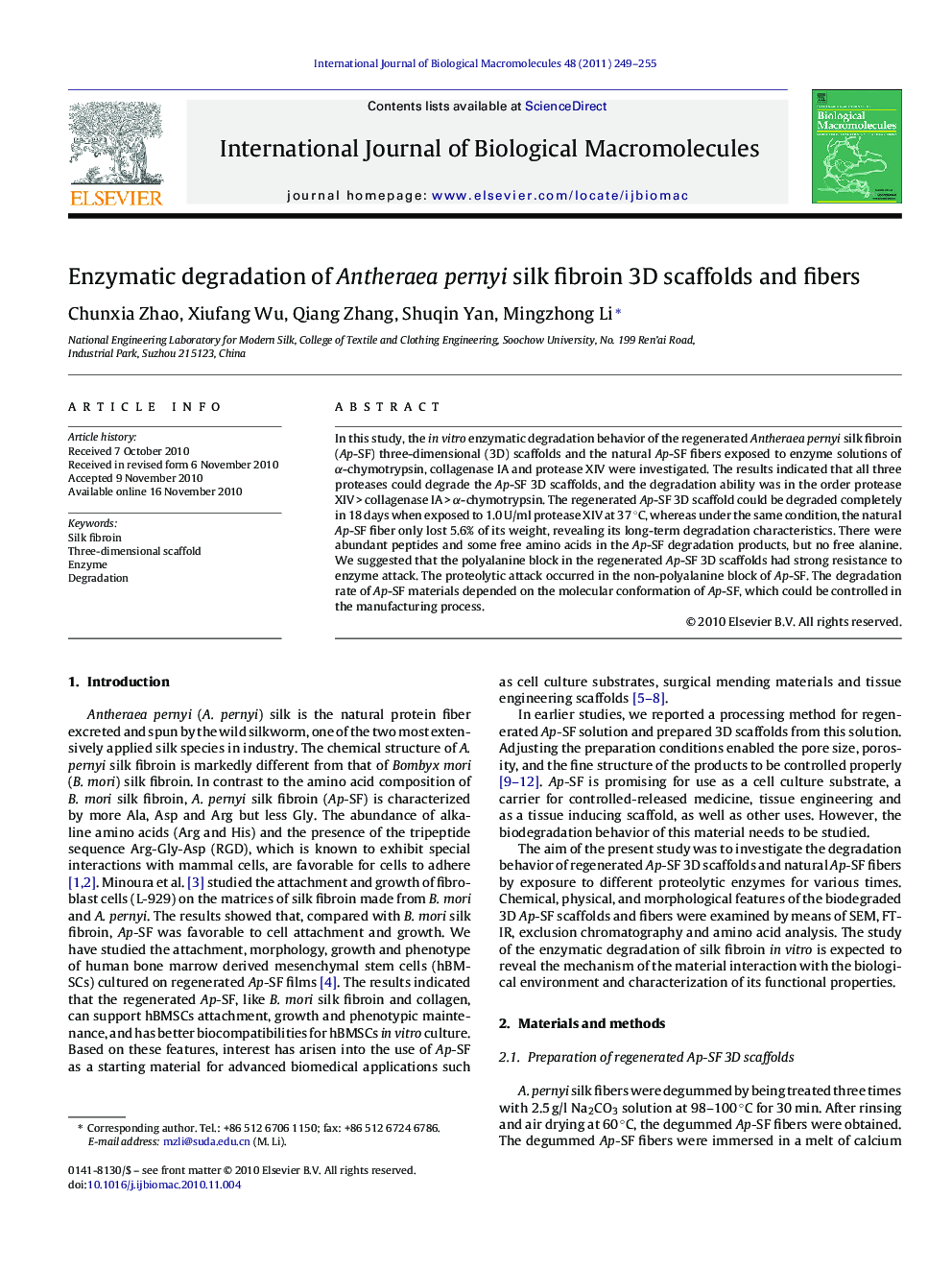| Article ID | Journal | Published Year | Pages | File Type |
|---|---|---|---|---|
| 1987360 | International Journal of Biological Macromolecules | 2011 | 7 Pages |
In this study, the in vitro enzymatic degradation behavior of the regenerated Antheraea pernyi silk fibroin (Ap-SF) three-dimensional (3D) scaffolds and the natural Ap-SF fibers exposed to enzyme solutions of α-chymotrypsin, collagenase IA and protease XIV were investigated. The results indicated that all three proteases could degrade the Ap-SF 3D scaffolds, and the degradation ability was in the order protease XIV > collagenase IA > α-chymotrypsin. The regenerated Ap-SF 3D scaffold could be degraded completely in 18 days when exposed to 1.0 U/ml protease XIV at 37 °C, whereas under the same condition, the natural Ap-SF fiber only lost 5.6% of its weight, revealing its long-term degradation characteristics. There were abundant peptides and some free amino acids in the Ap-SF degradation products, but no free alanine. We suggested that the polyalanine block in the regenerated Ap-SF 3D scaffolds had strong resistance to enzyme attack. The proteolytic attack occurred in the non-polyalanine block of Ap-SF. The degradation rate of Ap-SF materials depended on the molecular conformation of Ap-SF, which could be controlled in the manufacturing process.
